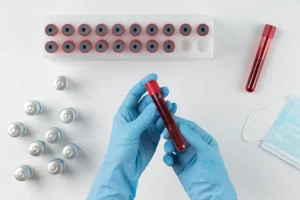Low blood pressure (also known as hypotension) refers to blood pressure below 90/60 millimeters of mercury, according to cardiologist Mario Gil.
According to the Medline Plus portal, normal blood pressure values range between 90/60 and 120/80 millimeters of mercury.
If blood pressure is too low, this can cause severe damage to the patient’s organs.
Symptoms of low blood pressure
According to internist Vinicio Velásquez, headache, and drowsiness may be the first symptoms of low blood pressure. Gil adds that other signs of this condition may include weakness, dizziness, and dehydration.
It is worth noting that the professional emphasizes that, before assuming that one has low blood pressure, one must take the respective measurement with a blood pressure monitor to determine whether blood pressure has dropped or not.
Causes of low blood pressure
Gil mentions that this condition is common in young women, especially those with venous diseases. He says that low blood pressure is dangerous in cases of dehydration, significant external or internal bleeding, or when there is septic shock. In this case, the patient must be hospitalized.
Velásquez adds that low blood pressure may also exist in these cases:
- Metabolic causes such as lack of sodium.
- Poorly controlled or undiagnosed hypothyroidism
- Medications that may cause this effect.
What to do if blood pressure drops?
If you have had your blood pressure measured and it is lower than normal, specialists recommend laying the person down and raising their legs about 30 or 40 degrees so that blood returns to the person’s heart.
In the case of dehydration, it is recommended to stay hydrated to stabilize blood pressure. In a hospital, the person may be given saline solution to restore the patient if necessary.
It is also essential to determine the cause. If it is dehydration, it can be recognized by these signs: dry mouth, sunken eyes, and lack of urination.
When should you see a doctor?
If the above measures are taken and there is no improvement, patients should immediately go to the emergency room at a hospital. Experts always recommend that patients consult their doctor, whether a cardiologist or internist, to find the cause of the hypotension and prevent life-threatening complications.
Some recommendations
Gil mentions that even young people should check their blood pressure to see if it is within acceptable ranges. Velásquez adds that it is important, in addition to the annual blood pressure check, to have complete medical examinations once a year, taking into account urine, sugar, complete hematology, thyroid tests, and any preventive examination to diagnose diseases early.






















+ There are no comments
Add yours